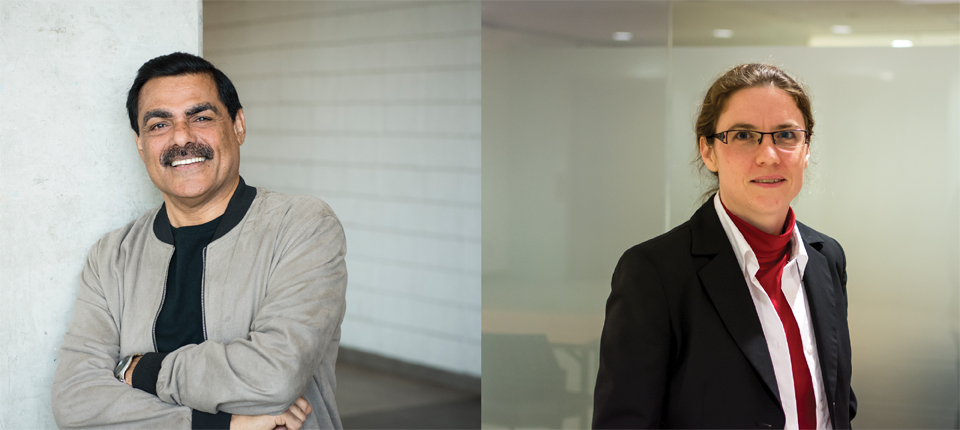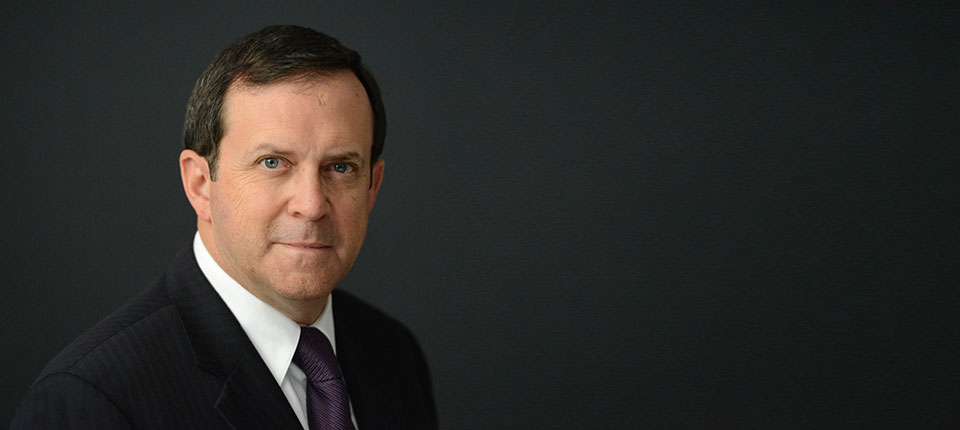Business Analytics and Performance

- Details
- Category: Business Analytics and Performance
Big-data analytics investments don’t necessarily mean big impact. Two of our researchers from Telfer are exploring how to get more value from big data.
Telfer Professors Ajax Persaud and Sandra Schillo want to know if small and medium-sized enterprises (SMES) are ready to take advantage of the deluge of data at their disposal, in new research funded by the Social Sciences and Humanities Research Council (SSHRC).
Mastery of big-data insights was supposed to enable SMEs to punch above their weight. By acquiring the right deep data and analytical skills, SMEs will be well in their way to making better decisions in the new digital landscape. That at least, was the chant small-business leaders were hearing for years. But with more than half of big data projects failing to achieve their objectives, what are Canadian SMEs to do?
“A lot SMEs are proceeding with caution on big-data analytics (BDA), and you can hardly blame them,” professor Schillo contends. The path to achieving value from BDA initiatives is far from clear. “It’s a big concern right now because Canada needs these organizations to stay current on BDA in order to remain globally competitive.”
Professor Persaud observes that “BDA is fast becoming a major focus for corporate executives with the main concern being how to extract maximum value from big data. It will transform corporate governance and decision-making” The transformation is so rapid that Canada’s Big Data Consortium has predicted a massive shortage of employees with the right mix of big data skills. “In a few short years, the ability to store, capture, process, analyze this information became of strategic importance to firms,” explained Persaud. “Every firm today wonders, how can I use it to my advantage?”
But he adds that BDA is still a gamble for most small businesses, even for companies with an appetite to chase big-data insights and resources to put behind the effort. “Capturing and mining the data does not automatically lead to value or better decisions – the right people with the right skills are needed to generate valuable insights and management needs to act strategically to harness the value of the insights.”
With their research, the Telfer researchers will use quantitative and qualitative methods to gauge the readiness of SMEs to leverage big data. Where most of the research in this area focuses on the technologies of big data, professors Persaud and Schillo are interested in BDA management processes, strategies and resources. Along the way, they’ll also contribute towards the development of frameworks, scales and indicators which, again, would illuminate the managerial aspect of big data. They expect to generate practical insights for Canadian SMEs, the academic management field, and the entrepreneurship public-policy community.
The researchers say that, as with any initiative designed to prepare SMEs to exploit big data for competitive advantage, their study will venture into uncertain terrain. But this much appears certain: given SMEs role in the economy, and considering the promise of big data, now is the time to help them unlock the value of big data. “One side, there’s a lot of euphoria about how SMEs might benefit from BDA, and on the other, there are those who say that only a wait-and-see approach will avoid business losses,” says professor Schillo. “But neither extreme is probably very realistic,” professor Persaud adds. “Our hope with this research is to make it a lot more realistic.”

- Details
- Category: Business Analytics and Performance
Telfer MBA Conferences series explores how talent is not enough

When recording industry icon Quincy Jones brought 40 of the world’s top artists together to record “We Are the World” for Ethiopian famine relief, he famously put this sign at the studio entrance:
“Check your ego at the door.”
Jones knew that to pull this off, he needed people who were accustomed to being in the spotlight to look past themselves and focus on the broader vision of what they were there to achieve. They had to appreciate that this was a team effort.
What makes a great team great? That’s what the University of Ottawa’s Telfer School of Management will explore in January through its MBA Conferences series.
“We will explore why some teams function really well, while others don’t, even if they have talented people on them,” said Richard Clayman, Sessional Professor, Leadership and Team Development, at Telfer. “This conference will focus on those critical ingredients that make teams perform at a high level, and why pure talent and the money to acquire it is not enough.”
The ingredients of a great team
For an individual’s talents to flourish and fully benefit the team, Clayman said there must first be:
- Shared values that foster an openness to accepting a common purpose (without political or personal agenda conflict)
- Mutual respect, made all that much easier to attain with shared values and a commitment to a common goal
- Honest, open and selfless communication that can improve the team dynamic and fuel healthy and constructive debate
- Lastly, the growth of trust, reinforced by personal accountability and dependability, derived from each team member consistently performing and delivering as they’ve committed to do
Telfer will explore these themes and others, with a panel of respected academic and industry experts.
“What Makes Great Teams Great?" takes place from 9 a.m. to 1 p.m. on Jan. 30. All MBA Conferences are open to students, alumni and the community at large. Best of all, they are free of charge. To learn more or to register, call 613-562-5800 ext. 7019 or visit www.telfer.uOttawa.ca/mbaconferences.
- Details
- Category: Business Analytics and Performance
Dr. Yeoh will be visiting from October 20 to 30, 2015 and will be engaged in BI research in collaboration with Greg Richards.

To contact Dr Yeoh during his stay, please contact Greg Richards at

